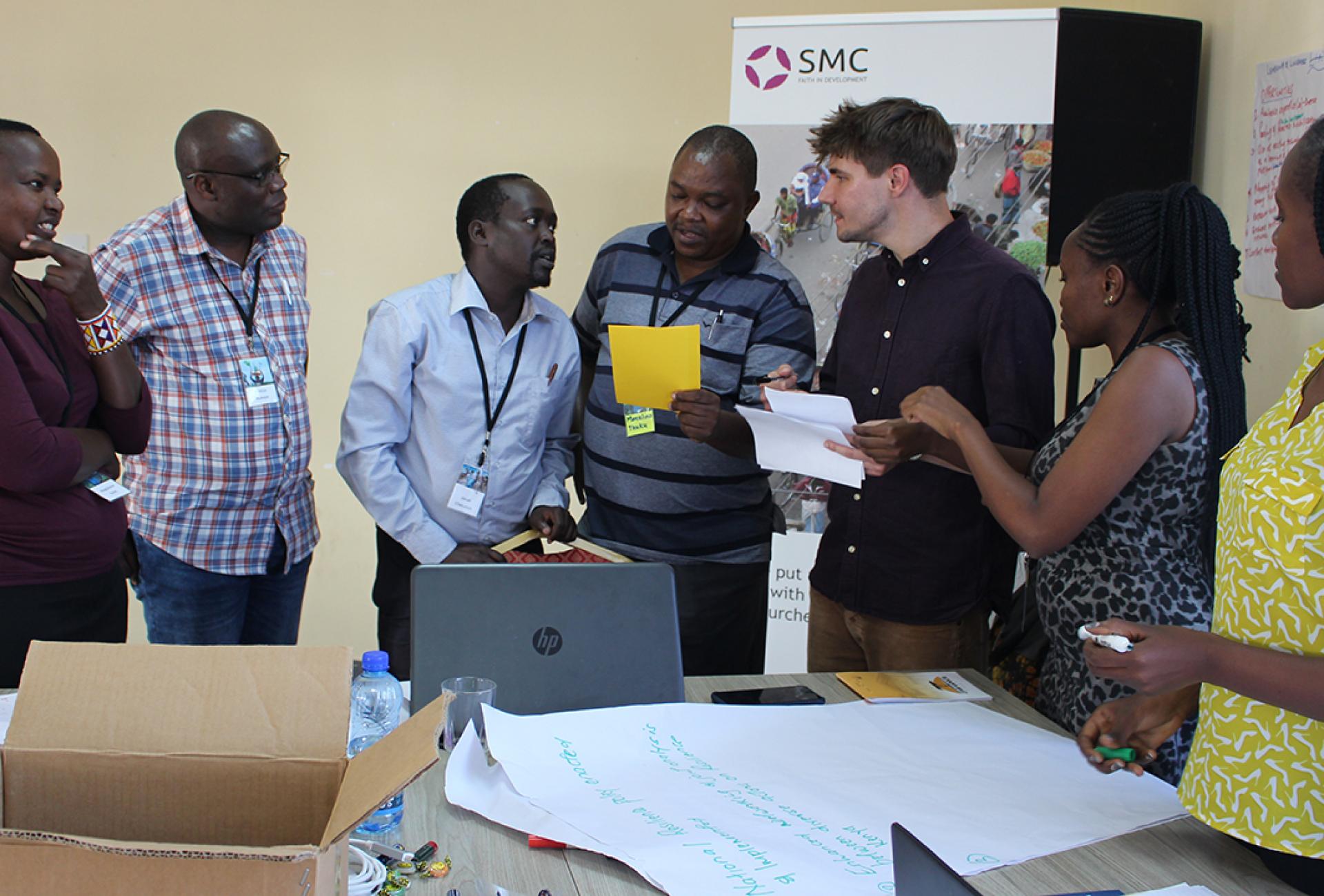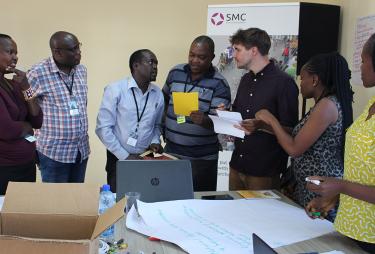Resilience puts words to sustainable aid work


Since 2017, SMC – Faith in Development has been working on an investment in resilience to increase people’s and organizations’ ability to adapt and manage both acute threats and longer-term changes, for example linked to climate change.
Nexus – where humanitarian work, development cooperation and peace work meet
It is a well-known problem that development aid, humanitarian aid and peace-building work are carried out independently of each other, or with a lack of coordination. By working explicitly with resilience, the conditions for connecting these different agendas – which are commonly referred to as “nexus” – increase.
“The work on resilience provides an overview and a holistic view that we have not had before,” says Italian resilience expert Silva Ferretti. She has followed the work of SMC and some of its member organisations together with local partners in Uganda, Ethiopia and Kenya, among others. In December, she presented her evaluation of SMC’s initiative.
Great commitment to resilience and nexus among member organizations
Lennart Nolvall is an programme officer with a special focus on resilience at SMC. He’s been around since the beginning of the venture. Already in 2015, SMC applied for funding from Sida for work on nexus between humanitarian work and development cooperation, as well as disaster prevention efforts. Then Sida said no.
“But around the same time, the Salvation Army, together with the Stockholm Resilience Centre, carried out a first effort focusing on resilience in Kenya. A seed was sown that led SMC to lay the foundation for an investment in resilience. It has been perceived as very relevant by both enthusiastic member organizations and their local partner organizations,” says Lennart Nolvall.
In 2017, SMC received funding from Sida for this special initiative. It includes 18 different efforts that are wholly or partly focused on building resilience. Eight Swedish member organizations and some 20 partners in Africa and Asia have been involved in the efforts. This is the work that Silvia Ferretti has now evaluated.
Resilience puts words to work that is already in progress
The evaluation shows that the concept of resilience has helped both member organisations and their partners to put into words the challenges they are already working on. By using the very word resilience, they have better explained and communicated their needs and challenges both to themselves and to others, such as international donors.
Silva Ferretti believes that this has also led to them being able to share solutions together to a greater extent. For example, several of the member organizations that support operations in Kenya together with their partner organizations have started their own network to support and learn from each other: Kenya4Resilience.
Representatives from the organizations involved in the initiative have been able to follow the evaluation in real time through a blog that Silva Ferretti started. Participating in the evaluation and sharing their experiences has provided energy and inspiration in the further work, several of them said.
An evaluation with special relevance during the corona pandemic
Work on the evaluation was, of course, affected by the corona pandemic. The evaluation was carried out through interviews as it was not possible to make a field trip for follow-up. In this way, the corona pandemic effectively illustrates the importance of work with resilience. As Silva Ferretti also noted in his presentation:
We can’t control the future. That’s why it’s so important to work with resilience – with resilience to move forward despite the unexpected and difficult.
Do you want to know more about SMC’s work with resilience?
- Take part of the full final report on SMC’s special investment in resilience 2017-2021
- Read more about lessons learned in SMC’s work on resilience in Africa
- Take part of our learning study of SMC’s travel efforts in Africa 2019-2020
- Read more in our interview with Silva Feretti
- Check out Silva Ferrtti’s blog from the evaluation here.
